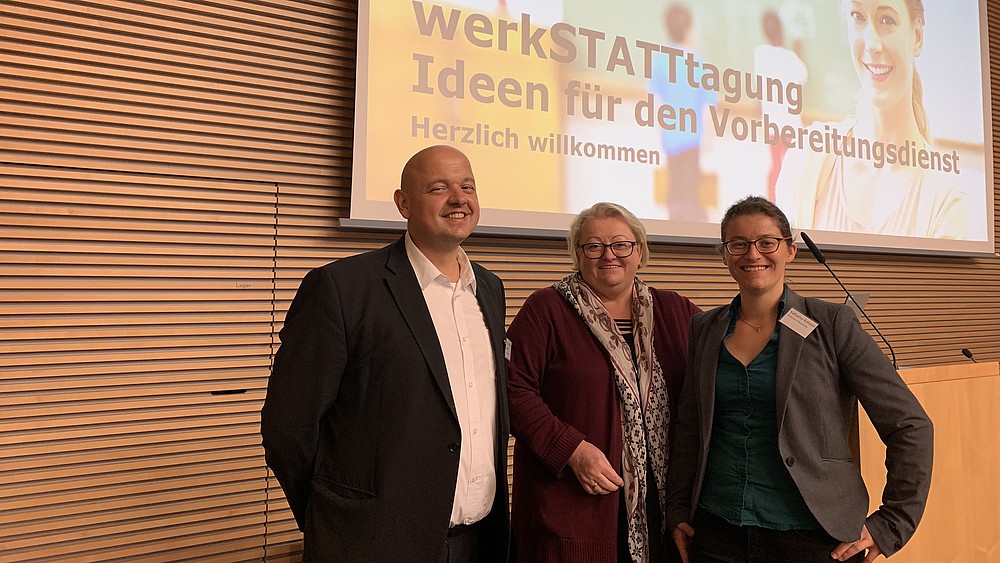On 27.09.2019, a team from the HSZG organized and moderated a working meeting of 65 experts from Saxon teacher training in Dresden.

For two years, Prof. Dr. rer. nat. Matthias Schmidt and Dipl.-Psych. Katharina Roitzsch accompanied the preparatory service of teachers in Saxony in order to evaluate it. after interviews, document analyses, online surveys and tests, the results have now been handed over to the Saxon State Ministry of Culture.
In the teaching profession, the preparatory service is an important link between university training and independent professional practice: For four days a week, trainee teachers or trainee teachers work at their school accompanied by their mentors, and spend one day together with other trainee teachers at the teacher training college in Dresden, Chemnitz or Leipzig. The preparatory service in Saxony has undergone various changes in recent years. For example, the training period has been shortened from 24 to twelve months and later extended to 18 months. In this context, the curriculum has also been fundamentally revised. The topic of lateral entrants is currently playing an increasingly important role. Their training takes place together with trainee teachers and trainee teachers, often in mixed groups, but only lasts 12 months.
Overall, the evaluation results are positive. The training is implemented professionally by those responsible. Many training instruments and forms of examination also received good marks from those involved. At the same time, focal points were identified that require further development.
The results of the evaluation also include a large number of suggestions for different components of the preparatory service. These were discussed at the werkSTATT conference on 27.09.2019 in Dresden.
In addition to trainers and heads of the twelve teacher training institutions in Saxony, representatives from the State Office for Schools and Education and the Ministry of Education and Cultural Affairs came together to take a closer look at the individual proposals: What makes sense in terms of content, where can improvements actually be made? What effort and what risks are associated with individual proposals? What concrete decisions and steps are required for implementation?
Based on the evaluation results, individual topics were prioritized and discussed in more detail in a gallery session and five parallel workshops. In November, the results of the werkSTATT conference at the Saxon State Office for Schools and Education will be reviewed, discussed and the next steps agreed.
Prof. Dr. rer. nat. Matthias Schmidt
Work Psychology & Organizational Psychology